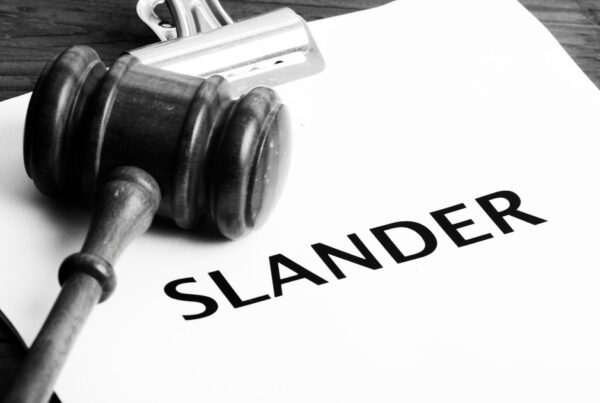Sometimes, good people are faced with unfortunate situations that prevent them from paying their mortgage. When this happens, they reach out to their lenders, who may agree to pauses or modifications on the mortgage payment’s terms.
However, because these agreements with the bank agents aren’t materialized in writing, they don’t make it to the massive banking bureaucracy. As a result, they’re deemed as not having paid their mortgage, resulting in the bank starting foreclosure proceedings.
But, they are exceptions! Property owners have certain rights under Florida mortgage law. Firstly, the bank must prove that it has “standing” to foreclose. This means that the bank must prove that it is the original promissory note’s rightful owner, that it has a valid note via an assignment, or that it has lost it and cannot reasonably find the original. To establish standing, “a plaintiff must demonstrate it is the owner of the note and mortgage, and that it acquired such ownership prior to filing the action.” Nationstar Mortg., LLC v. Marquez, 180 So. 3d 219, 221 (Fla. 3d DCA 2015).
The party seeking foreclosure must present evidence that “it owns and holds the note and mortgage in question in order to proceed with a foreclosure action.” Servedio v. US Bank Nat’l Ass’n, 46 So. 3d 1105, 1107 (Fla. 4th DCA 2010). A foreclosure plaintiff must either “tender the original promissory note to the trial court or seek to reestablish the lost note under section 673.3091, Florida Statutes.” Gee v. U.S. Bank Nat’l Ass’n, 72 So. 3d 211, 213 (Fla. 5th DCA 2011).
Fla. Stat. § 673.3091 states that a person not in possession of an instrument is entitled to enforce said instrument if:
(a) The person seeking to enforce the instrument was entitled to enforce the instrument when loss of possession occurred, or has directly or indirectly acquired ownership of the instrument from a person who was entitled to enforce the instrument when loss of possession occurred;
(b) The loss of possession was not the result of a transfer by the person or a lawful seizure; and
(c) The person cannot reasonably obtain possession of the instrument, because the instrument was destroyed, its whereabouts cannot be determined, or it is in the wrongful possession of an unknown person, or a person that cannot be found or is not amenable to service of process.
- 673.3091(1), Fla. Stat. As is clear from the statute’s plain language, the critical date to establish entitlement to enforce a lost note is the date “when loss of possession occurred.”
A Plaintiff must still prove that it “acquired ownership from a party with the right to enforce the note when lost.” Lewis v. US Bank Nat’l Ass’n, 298 So. 3d 72, 76 (Fla. 4th DCA 2020).
“Where a bank is seeking to enforce a note which is specially endorsed to another, it may prove standing through evidence of a valid assignment, proof of purchase of the debt, or evidence of an effective transfer.” Houk v. PennyMac Corp., 210 So. 3d 726, 730 (Fla. 2d DCA 2017) (emphasis added).
An assignment is “insufficient to prove standing where the assignment reflects transfer of only the mortgage, not the note.” Tilus v. AS Michai LLC, 161 So. 3d 1284, 1286 (Fla. 4th DCA 2015). See also Vieira v. PennyMac Corp., 241 So. 3d 193, 197 (Fla. 4th DCA 2018) (“A bank does not have standing to foreclose where it relies on an assignment of the mortgage only”). Also see Forty One Yellow, LLC v. Escalona, 305 So. 3d 782, 787 (Fla. 2d DCA 2020) (“An assignment of the mortgage without an assignment of the debt creates no right in the assignee”).
In Peters v. Bank of N.Y. Mellon, the Second District Court of Appeal found that:
In this regard, the bank’s proof depended on the four mortgage assignments’ chain that began with the original lender. Each of the first three assignments expressly included an assignment of the note with the mortgage. However, the fourth assignment from EMC to the bank omitted the critical language assigning the note along with the mortgage. Because the fourth assignment assigned only the mortgage and not the note, it was insufficient to transfer any interest in the note to the bank. 227 So. 3d 175, 179 (Fla. 2d DCA 2017).
So, as you can see, if someone stops paying their mortgage due to relying on promises made by bank agents, they’re still entitled to demand from their bank. However, because banks have a practice of selling loans over and over again, original notes are often lost, making it difficult for banks to foreclose. This doesn’t mean that they can’t foreclose or that the debt is extinguished, but it would certainly put the property owner in a position to negotiate the foreclosure action, or a repayment/modification plan.
For more information on mortgage disputes, foreclosure actions or real estate matters, contact one of our real estate litigation attorneys at 305-570-2208. You can also email lead attorney Eduardo directly at eduardo@ayalalawpa.com.
We at Ayala Law PA are passionate about helping those in legal need, so please don’t hesitate to schedule a case evaluation with us online here.







